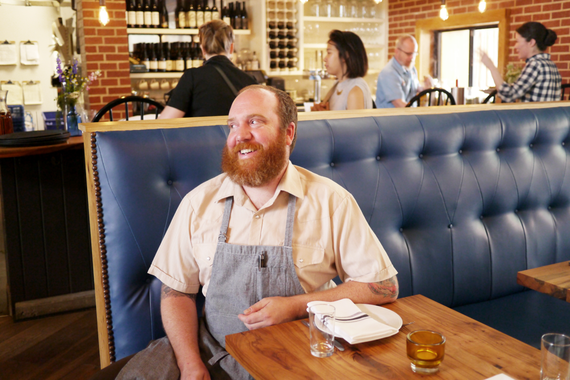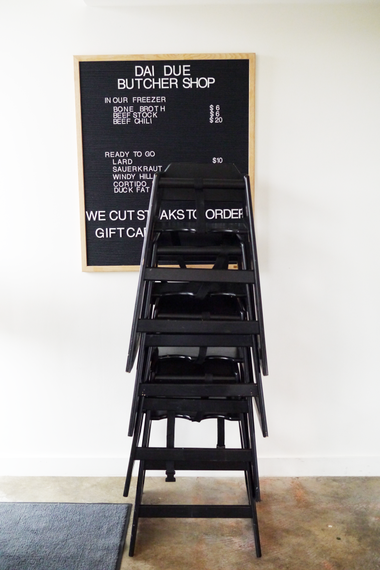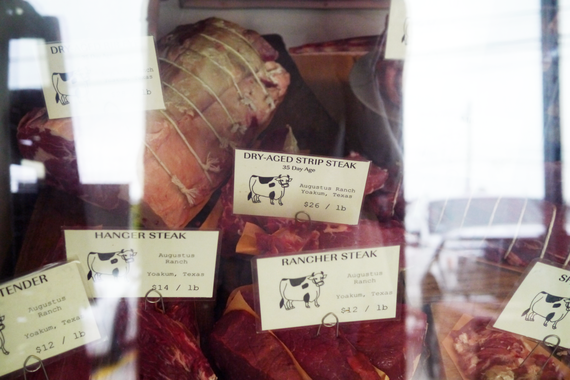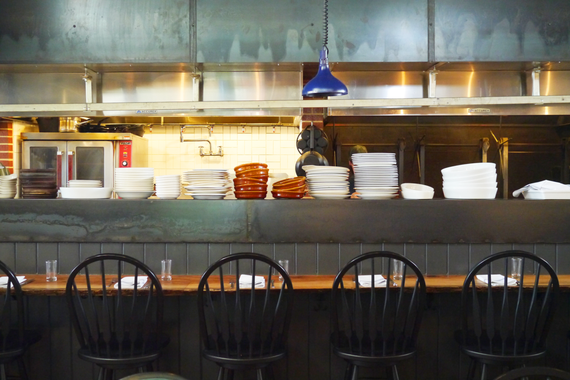
When Chef Jesse Griffiths opened the doors to his first brick-and-mortar restaurant last fall, a few things were non-negotiable. He would buy only whole animals, work with local Texas producers, source the freshest possible ingredients, and find a way to use every bit of what he had.
It's an expensive way to operate. So, to make it financially viable, Jesse tacked on a butcher shop.
The result is Dai Due, a restaurant and butcher shop in one that work together to move inventory, serve guests, and support a sustainable food system. We sat down with Jesse to learn more about his approach to to business and how he's using creativity and flexibility to make good, equitable food a reality.
Tell me about your background and how you became interested in butchery.
I've been in restaurants my whole adult life, since I was 16. I got into the back of house, the kitchen, and I wanted to work days. There was a period where I got a little burned out on the line, so I started doing prep, and part of my job was butchering. I just really enjoyed it.
Then we traveled to Europe and worked on some farms over there, and seeing the whole systems in place, where the food was coming from -- I got a little more interested in it. Especially how this region (central Texas) is reflected through food; it's very heavy on animals because they are one of the only things that can really thrive. This is a very harsh environment. We might get a little rain, but we also might get hail, or we might not get any rain for four years. It's a very hard place to grow things.
And if you look at it historically, it's a kind of meat-based economy here. I thought it would be a really good lens to look at local food, through a butcher shop.
You started out with a farmers' market stand -- how did that come about?
We started out as a supper club almost nine years ago. It was a dinner that we would do in a farm, or at a hotel -- wherever we could find. What they call a pop-up dinner now; we didn't have that newfangled term back in the day.
That was my job. We were doing three or four a month, almost one every week at its peak. Then we started doing the farmers' market because we wanted more... I don't know. Stability? Reach? We wanted another giant pain in the ass. [Laughs.] So we decided to go to the farmers' market and double our pains in the asses.
It was great. It was fun. It was still volatile because of said weather; bad weather could shut us down.
Were you selling meat or doing other foods?
We've always called ourselves a butcher shop. But we deal heavily in seafood, we deal heavily in fruits and vegetables and bread, and all these things, and we did that at the farmers' market as well. If artichokes were in season we would pickle them or marinate them and sell those. If we got a bunch of wild boar we'd make sausage out of it. Meat is a heavy focus, but it's not the only focus. The farmers' market reflected that.
And it was all about what you could get access to locally at that moment.
Absolutely. That's what everything is about to us. It's such a dynamic approach -- not to brag, but it's exciting to me because we have to be dynamic.
Tell me about the evolution to the brick-and-mortar shop and restaurant. Did you have a concept for the restaurant or butcher shop first, or was it always a hybrid?
It was always the whole idea, because we knew that the equation for us would include whole-animal butchery. The base of everything that we do is very expensive -- I don't mean what we charge the people, because we charge people a very fair amount considering what we're paying. Probably too fair, according to my accountant.
We source everything locally that we can, all of our fresh product. All of our dry goods are organic, and we don't discuss that at all. If you're eating rice or flour, you're getting an organic product. Nobody does that, because they don't have to.


